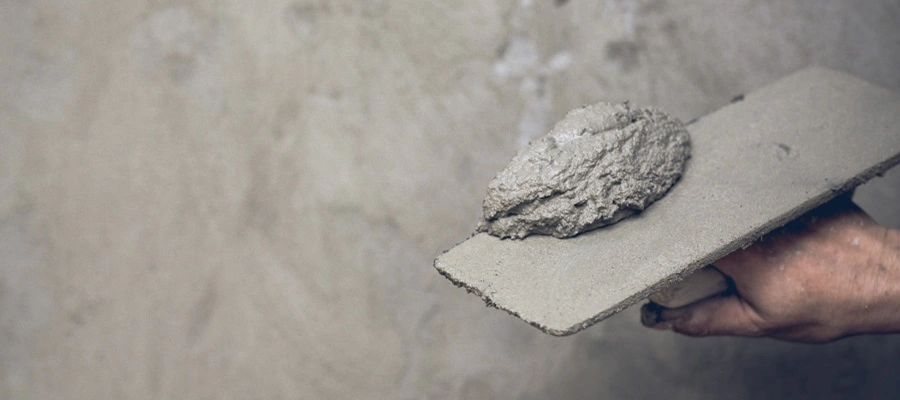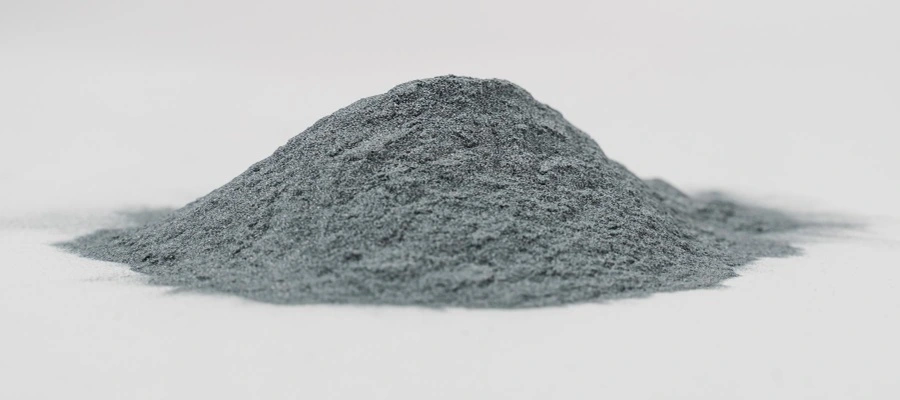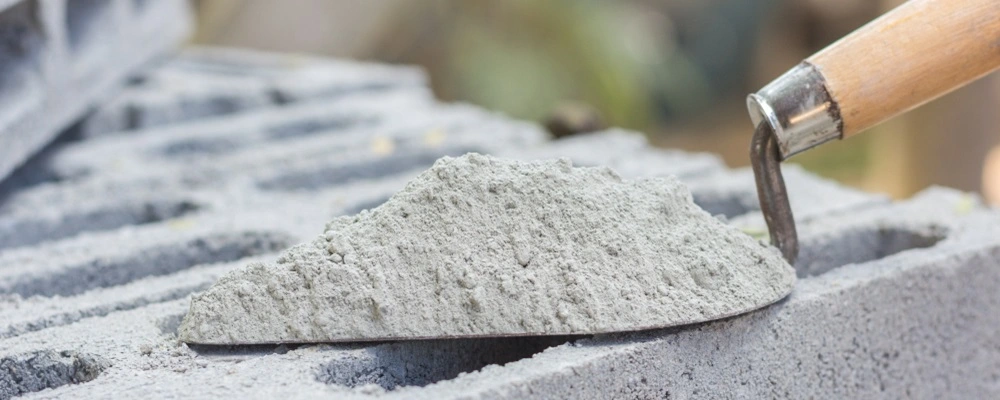Cement is one of the most extensively used building materials worldwide. It is affordable, strong, and versatile. When utilized properly, cement is commonly used to create a variety of structures, including homes, commercial buildings, bridges, tunnels, and roadways. Despite this, most individuals are not usually familiar with cement, like what it is, its types, properties etc. Hence, Brick & Bolt Brings the compressive guide on cement in construction, which includes its manufacturing process, types, properties, uses, advantages, costs and top cement companies in India.
So, let’s start the journey!
What is Cement?
Over the years, people have started using cement in more and more different ways. Back in the day, people used crushed pottery, volcanic ashes, and other things as cement. Joseph Aspdin made Portland cement in 1824. It was the first type of cement that we use today.
In a broader sense, cement refers to any kind of adhesive material, but in the context of building construction and civil engineering, it refers specifically to the binding components. Cement is a finely powdered mixture of calcium, silicon, iron, and aluminium compounds ground firmly together. It hardens into a hard mass when combined with water. When cement is mixed with water, a chemical reaction called hydration occurs.
Hydration produces submicroscopic crystals or a gel-like substance with a large surface area, which is what causes setting and hardening. Simply put, when you mix cement with water, you get a paste holding other heavy components like sand or aggregates. Because of its cohesive and adhesive qualities, it is a necessary component of mortar and concrete. Constructional cement, which may even set and harden in water, is called hydraulic cement due to its hydrating qualities. Portland cement is by far the most significant of them.
There are various types of cement and various types of cement grades are available in the market. You need to choose the type and grade of cement for your project based on its specifications and requirements.
Cement Manufacturing Process
Ordinary Portland cement is mostly manufactured from calcareous and argillaceous materials, such as chalk or limestone, as well as from minerals found in clay or shale, such as magnesium, silica, ferric, and aluminium oxides. Almost every country has the raw materials and cement plants needed to make Portland cement.
- The local rock is used to quarry the raw materials, which are then first crushed to a size of less than 50 mm.
- Then, in a raw mill, the raw materials are combined and ground. Weigh feeders distribute precisely measured amounts of each item onto the belt. The chemical composition of the raw mix is corrected in its formulation.
- Then, the produced raw mixture is heated to between 1400 and 1450 °C in a large rotary kiln.
- After that, the material that emerges from the kiln is clinker, which is shaped like balls and has a diameter of 10–20 mm. After being allowed to cool, the clinker is sent to a ball and tube mill and processed into a fine powder. Then, 5 per cent gypsum is added during grinding to stop the cement from setting too quickly.
- The raw materials for cement manufacturing may be combined and ground either in a wet or dry environment. Thus, there are two cement manufacturing processes available: first, the Dry Process and second, the Wet Process.
- The actual manufacturing processes also rely on the moisture content and hardness of the raw materials.
Types of Cement
Cement comes in a variety of forms, each having special qualities, applications, and benefits. Selecting the best type of cement for a given set of building requirements requires an understanding of its applications and characteristics. The following are the most common types of cement used in construction and civil engineering.
- Ordinary Portland Cement (OPC)
- Portland Pozzolana Cement (PPC)
- Rapid-Hardening Cement
- Extra-Rapid-Hardening Cement
- Quick-Setting Cement
- Low-Heat Cement
- Sulfate-Resisting Cement
- Blast Furnace Slag Cement
- Coloured Cement
- Air-Entraining Cement
- Expansive Cement
- Hydrographic Cement
- Portland Limestone Cement
- High-Alumina Cement
- White Cement
Properties of Cement

The different physical properties of cement are as follows:
Fineness: Fineness refers to the cement’s particle size. Clinker gets ground to the appropriate fineness by varying the grinding process.
Strength: The compressive strength, tensile strength and flexural strength of cement is test to evalute the durability of cement over an extended length of time.
Consistency: The viscosity, or flowability, of cement paste is called the consistency of the cement.
Soundness: The cement’s capacity to withstand shrinking as it hardens is what makes it sound. The soundness of cement may be determined using the Le-Chatelier and Autoclave tests.
Setting Time: The amount of time needed for cement to transition from a liquid to a plastic state and then from the plastic state to a solid state is known as the setting time of cement.
Heat of Hydration: Heat of hydration is the chemical process, which takes place when cement and water come into contact. It releases the energy. It’s one of the important component in the curing of concrete.
Specific Gravity: The mass of cement divided by the mass of the reference material, which is often water, is the cement’s specific gravity, also known as its relative density.
Bulk Density: The mass of a material in relation to a certain volume is known as its bulk density, which is often stated in cement as “kilograms per cubic meter.” The volume occupied by the cement and any air caught in between the particles is reflected in the bulk density.
Loss of Ignition: This is the weight change that is measured in a heated cement sample. Loss of ignition is a useful indicator when the cement has been contaminated by transportation or other circumstances.
Uses of Cement in Construction
Cement is one of the highly helpful binding ingredients in building construction. Cement is a crucial component in civil engineering because of its uses in so many different areas of the construction industry. The following list includes only a few of cement’s many uses.
- Cement is a component of the mortar used for masonry work, plastering and pointing work.
- It is used in the fabrication of pipe and drain joints.
- It is used to ensure that the building is waterproof.
- Cement is used in various types of concrete to build columns, lintels, staircases, beams, floors, and roofs.
- It is used in situations when a hard surface is necessary to shield exposed building surfaces from weather-related damage as well as certain organic or inorganic chemical exposure.
- Cement is used in the production of precast pipes, heaps, fence posts, etc.
- It helps build important engineering buildings, such as bridges, culverts, dams, tunnels, and lighthouses.
- It is used in the construction of pathways, waterproof flooring, and home foundations.
- Cement is used to build highways, water tanks, light poles, telephone booths, tennis courts, and more.
Advantages of Cement
- Cement is a cost-effective construction material.
- Cement is a versatile building material and has a wide range of applications.
- Cement is easily accessible to get at any part of the world.
- Cement has very strong binding strength.
- Cement is one of the best fire-resistant construction materials.
Cost of Cement
Cement is a highly used construction material in the industry. Its cost usually ranges between 270 and 500 rs. However, remember that the price of cement varies according to its types, grades, market conditions, supply and demand, your location, and the cement brand you choose for your project.
Top Cement Companies in India

Here are some of the best cement companies in India that you can choose from for your building projects.
- Ambuja Cement
- Ultratech Cement
- ACC cement
- Dalmia Cement
- Ramco Cement
- Prime Gold Cement
- Birla Cement
Conclusion
Cement is one the amazing construction materials that is used in many different sectors of the industry. It is a crucial component of construction that may be used for building significant structures. Because of its unparalleled strength, durability, and versatility, cement is a fundamental component of the building industry. Architects and builders can choose the best cement for their projects by having a thorough understanding of the types of cement, its applications, properties, advantages, costs and top cement brands in India. Most of the highly reputed construction companies, like Brick & Bolt, choose the most suitable type of cement for your project after analysing your structure’s need, types of loads imposed on the structure and weather conditions. In addition, they provide the best quality craftsmanship, 470+ quality checks, and an online house construction cost calculator for free for your construction projects.

